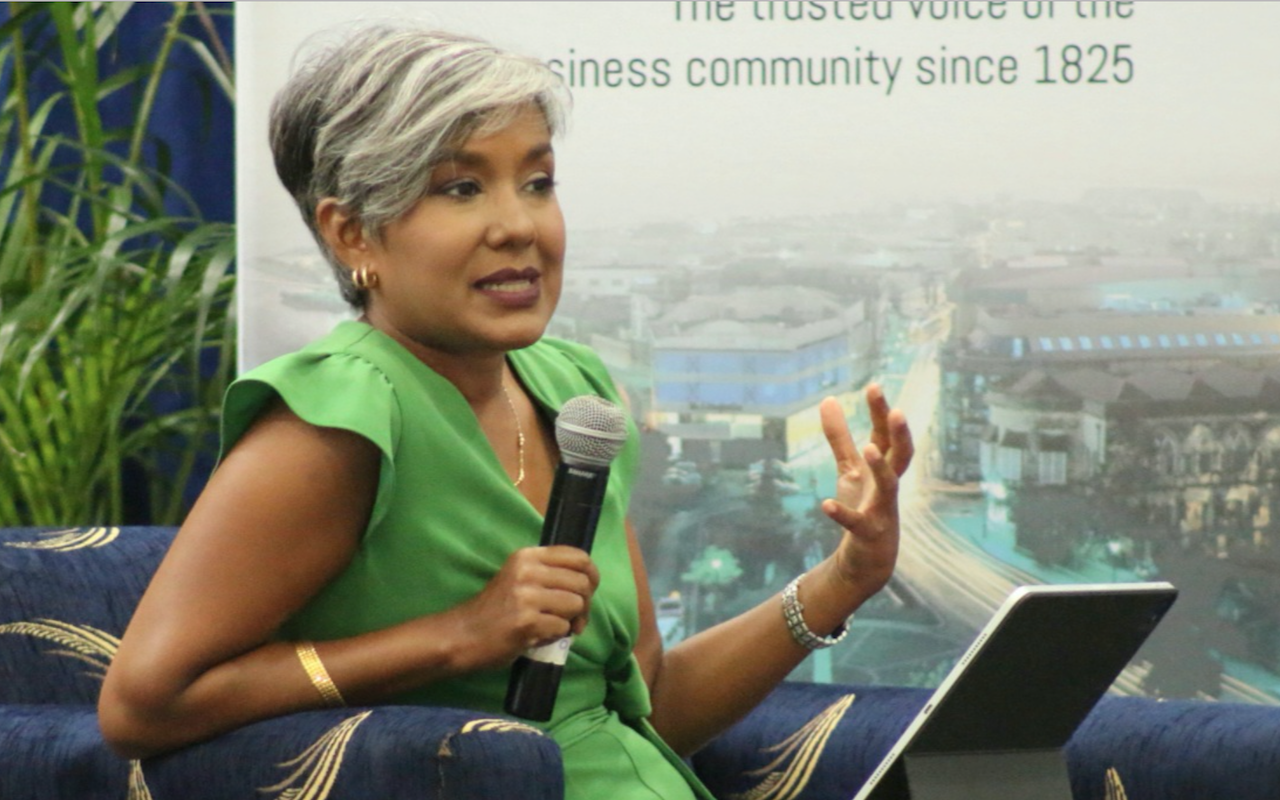Though largely welcoming Government’s budgetary measures announced on Monday, describing them as generally progressive and balanced, members of the private sector have expressed concern that some of the measures are regressive.
Regional Economic Advisor Marla Dukharan commended the Mia Mottley administration on the tax measures she said were designed to help ease the cost of living.
However, she said where she disagreed with Government was on the Alternate Fuel Levy, which will be applied on vehicles not powered by diesel or gasoline at a rate of $25 per month or $300 per year, plus a rate of $0.02 per kilometre above a 15,000 km quota.
“I have to say I disagree with this approach. In the first place, it appears contradictory to me to apply various incentives for electric vehicles but then impose this special tax to compensate for the loss in tax revenue based on these very incentives,” said Dukharan.
“In order to address the shortfall in revenue earmarked for road repairs, why not increase taxes on those vehicles which do the most damage to our roads anyway, such as large commercial vehicles and excavators, for example? Furthermore, why not impose tolls to use certain roads and use that revenue specifically for road repairs?”
The economist noted that the monitoring of the mileage clocked by electric vehicles could end up being “quite overcomplicated”.
Dukharan also questioned the rationale behind Government incentivising diesel-powered electricity generators, saying “it does not make sense especially in the current context of high fuel prices”.
“Perhaps the further incentivisation of private solar panel installation and private battery storage, for example, would have been a better option to ensure energy security and build resilience,” she said.
Calling for a more consistent approach to policymaking, Dukharan said “either we are incentivising a change in behaviour, which is a switch to a more sustainable life, or we are not”.
In relation to the Pandemic Contribution Levy, which is applied at 15 per cent of the profits of businesses in some sectors, Dukharan said it was reasonable since the sectors identified were largely profitable and non-indigenous to Barbados.
“However, the Pandemic Contribution Levy on one per cent on anyone earning $6,250 or more per month strikes me as a regressive tax. In my view, the threshold to qualify for this tax should have been higher and it should have been structured progressively – meaning a higher tax rate, the higher the income level.
“Furthermore, I would have liked to see more progressive income taxes overall – a higher personal allowance, maybe, and a tiered tax structure such as higher-income earners paying a higher tax rate instead of a flat rate for everyone,” she explained.
Dukharan was addressing a post-Budget breakfast forum, hosted by the Barbados Chamber of Commerce and Industry (BCCI) and PricewaterhouseCoopers (PwC) on Tuesday.
Chairman of the Barbados Private Sector Association Trisha Tannis said private sector operators, especially those in the financial services sector, were not surprised they are the target of the Pandemic Contribution Levy which is to be applied over an 18-month period for businesses in the telecommunications and commercial banking sector, the retail sale of petroleum products, and general and life insurance, with a net income above $5 million in 2020 and 2021.
However, she said, they were not keen on it being backdated.
“That is something that is seen not to be as progressive as a tax. We understand we all have to hold hands and we have to walk through this crisis together. However, applying that tax retrospectively certainly is not sitting well with the sector, though they understand there is a contribution to be made to the overall effort,” said Tannis.
The one per cent tax for workers will take effect April 1, while the 15 per cent tax for companies will be for the financial years ending March 2021 and 2022.
“We ask those sectors that remain largely unscathed in 2020 and 2021 to make a one-off contribution to the herculean efforts expended to hold our society together during the two years of the COVID pandemic,” Mottley had said as she announced the measure.
However, Tannis cautioned against saying that businesses came through the COVID-19 pandemic “largely unscathed”, pointing out that some firms have been in “dire straits” for more than a decade and the financial services sector also bore the brunt of the 2018 debt restructuring.
Meanwhile, Deputy Principal of the UWI, Cave Hill Campus Professor Winston Moore noted that the Pandemic Contribution Levy was aimed at higher income individuals since the typical Barbadian did not earn $6,000 per month.
“The only area of concern that I had with the tax is . . . . I am not sure if we are going to take into account the taxable income of the individual or if there are going to be other issues that we have to look at. So, the implementation is going to be really important,” said Moore. (MM)




